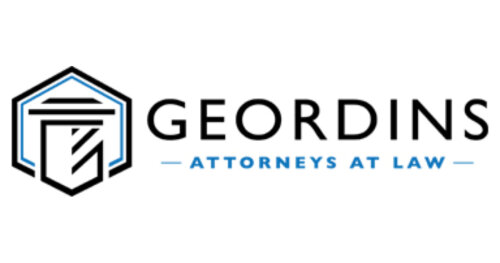Best Education Law Lawyers in Turks and Caicos Islands
Share your needs with us, get contacted by law firms.
Free. Takes 2 min.
Or refine your search by selecting a city:
List of the best lawyers in Turks and Caicos Islands
About Education Law in Turks and Caicos Islands
Education Law in the Turks and Caicos Islands primarily governs the operation of educational institutions, the rights and obligations of teachers and students, and the general framework for delivering educational services. This legal field addresses issues such as access to education, educational standards, discrimination, and special education needs. The Turks and Caicos Islands aim to ensure that everyone has the right to access quality education, provided under fair and safe conditions.
Why You May Need a Lawyer
Legal assistance in education law may be necessary for various reasons. Parents may encounter issues regarding their children's enrollment, placement, or accommodation in schools. Teachers and school administrators may require guidance on employment issues, compliance with education laws and regulations, and dispute resolution. Students or parents facing discrimination or needing to understand special education rights also frequently seek legal advice. Additionally, schools themselves may need legal representation or consultation when dealing with complex educational policy changes or allegations of misconduct.
Local Laws Overview
The Turks and Caicos Islands Education Ordinance is one of the primary legal documents governing education. Key aspects include:
- Compulsory Education: Regulations ensure that children between a certain age range must attend school.
- Non-discrimination: Laws protect students from discrimination based on race, gender, disability, or other protected characteristics.
- Special Education Needs: Provisions exist to support children who require special education services, ensuring access and inclusion.
- Safety Standards: Schools are required to adhere to specific safety and health standards, ensuring a safe learning environment.
- Teacher Qualifications: There are legal requirements for teacher qualifications and certifications, ensuring high educational standards.
Frequently Asked Questions
What age is compulsory education required in Turks and Caicos Islands?
Compulsory education typically requires attendance from ages five to sixteen.
How can I address a complaint of discrimination in a school?
You should first raise the issue with the school administration. If unsuccessful, you may seek legal advice to explore further action.
What are my rights regarding special education services?
Children with special needs are entitled to appropriate accommodations and modifications to ensure their full participation in education.
How do I know if a school is in compliance with safety standards?
Schools must adhere to safety guidelines set by local authorities. You can request this information from a school directly or consult with the Ministry of Education.
What criteria must teachers meet to be qualified in Turks and Caicos Islands?
Teachers must possess specific certifications and qualifications as determined by the Ministry of Education to ensure high teaching standards.
Can a school refuse to enroll my child?
A school may only refuse enrollment for specific reasons such as lack of capacity, but they must provide a valid justification.
Is homeschooling an option in Turks and Caicos Islands?
Yes, homeschooling is permitted, but parents must comply with regulations established by the Ministry of Education.
How are school disputes typically resolved?
Disputes often start with negotiations and mediations before escalating to legal action, if necessary.
Are there legal protections against bullying in schools?
Yes, laws exist to protect students from bullying and harassment, and schools have policies to address complaints.
What should I do if my child's school is not providing adequate resources?
Address concerns with the school's administration. If issues persist, legal advice may be necessary to ensure compliance with educational standards.
Additional Resources
For those seeking further assistance, several resources are available:
- Ministry of Education, Youth, Culture and Library Services: Offers information on educational policies and regulations.
- Ombudsman of Turks and Caicos Islands: Can investigate complaints related to public sector education issues.
- Legal Aid Clinics: May provide free or reduced-cost legal advice for eligible individuals.
Next Steps
If you require legal assistance in education law, start by gathering all relevant documentation and details related to your case. You can then consult with a local attorney specializing in education law. They can provide guidance tailored to your situation and represent your interests if necessary. Consider contacting the Bar Association of Turks and Caicos Islands for recommendations on qualified legal professionals.
Lawzana helps you find the best lawyers and law firms in Turks and Caicos Islands through a curated and pre-screened list of qualified legal professionals. Our platform offers rankings and detailed profiles of attorneys and law firms, allowing you to compare based on practice areas, including Education Law, experience, and client feedback.
Each profile includes a description of the firm's areas of practice, client reviews, team members and partners, year of establishment, spoken languages, office locations, contact information, social media presence, and any published articles or resources. Most firms on our platform speak English and are experienced in both local and international legal matters.
Get a quote from top-rated law firms in Turks and Caicos Islands — quickly, securely, and without unnecessary hassle.
Disclaimer:
The information provided on this page is for general informational purposes only and does not constitute legal advice. While we strive to ensure the accuracy and relevance of the content, legal information may change over time, and interpretations of the law can vary. You should always consult with a qualified legal professional for advice specific to your situation.
We disclaim all liability for actions taken or not taken based on the content of this page. If you believe any information is incorrect or outdated, please contact us, and we will review and update it where appropriate.
Browse education law law firms by city in Turks and Caicos Islands
Refine your search by selecting a city.








